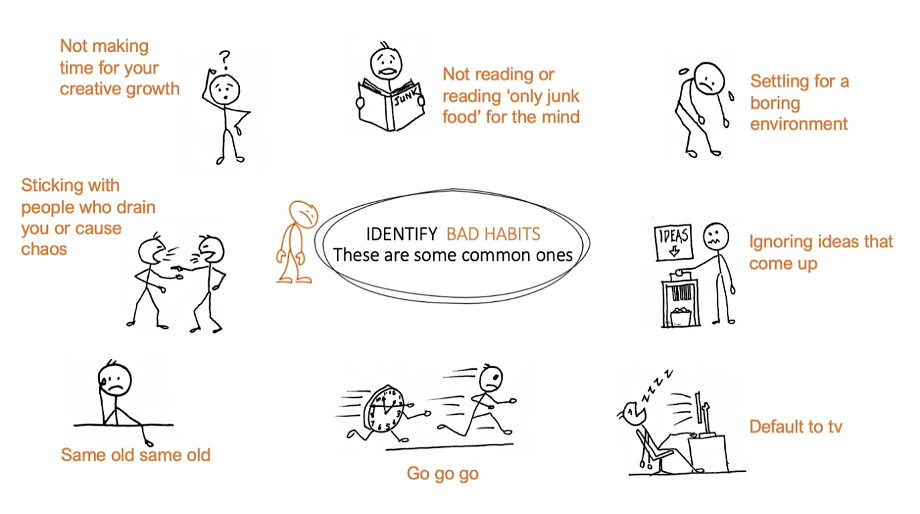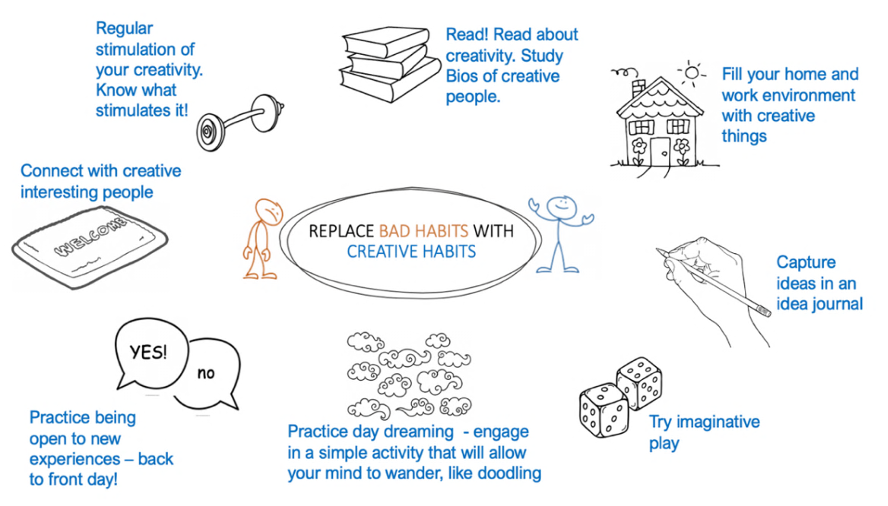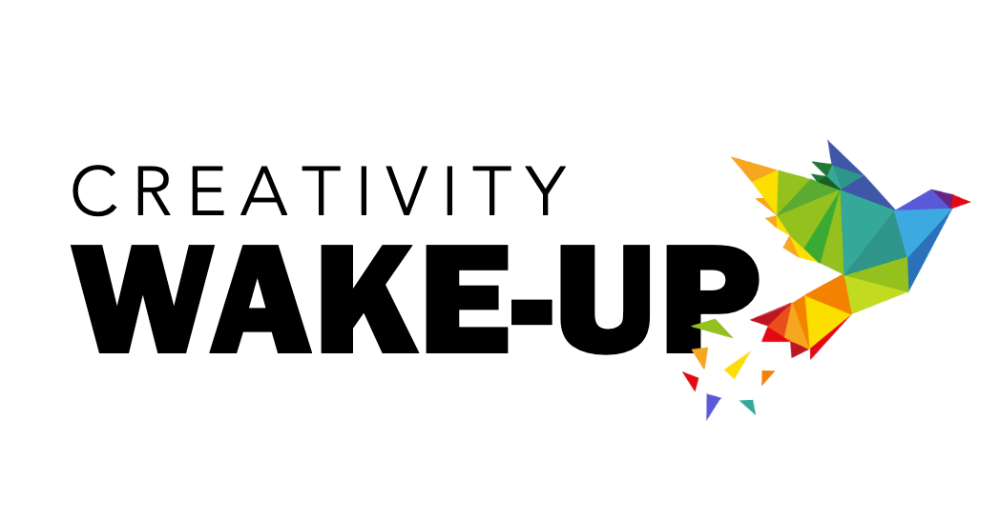What you do Everyday Matters: How to Build Personal Creative Habits

If you want to direct your life on a path of continual positive change, then you need to tap into the most powerful force for change in the universe. Fortunately for you, that force is always with you, ready to lend a hand if you just ask. That force is time. Time is the force that magnifies those simple daily disciplines into massive success. There is a natural progression to success: plant, cultivate, harvest—and the central step, cultivate, can only happen over the long run.
Most of us don’t notice the impact of tiny things that we do every day. When it comes to change and growth, we want to see big, visible signs of improvement. We want to see our savings grow, our skills improve, or our race times shorten. We can’t always perceive (and therefore don’t value) the tiny, daily signs of change. This is where bad habits creep in. It’s easy to do the bad habit. It seems insignificant. Whether I do it or not, I don’t see the impact straight away.
In the Slight Edge book, author Jeff Olson uses his decades of experience as a personal development specialist to help us understand the power of small choices to impact the big picture of our lives. If we don’t pay attention to the little things, we do every day, we may end up asking the frustrated question that none of us want to ask: “How did I end up here?”
When it comes to our finances, our health, our personal development, or our relationships, Olson says that all of us are on one of two horizontal lines. The lines look parallel; however, one line is arching very slightly upwards and one line is arching very slightly downwards. Over time, the lines get farther and farther apart. Only over time, does it become apparent whether you are on the upper line (success) or lower (failure) line.
The results of daily habits

CONSISTENTLY REPEATED DAILY ACTIONS + TIME = UNCONQUERABLE RESULTS.
Identify your bad habits
Many small bad habits have the effect of stifling our creativity because they steal our time, diminish our motivation, and make us less open to possibility and imagination. Here are some common bad habits.

Replace bad habits with creative habits
Consider which creative habits you could develop to replace those bad habits. Here are some ideas.

Track your habits
Remember that what you do every day matters. Choose one or two habits to stop and one or two habits to start. Make them very small actions that you are able to do. Resolve to stick with consistently repeated small actions day in and day out that, over time, produce results. Find an accountability partner. Try using our habit tracker, which you can download below. Don’t only stop bad habits, but start good ones. For example: Reading is a powerful habit for growth and change. Reading good books increases our knowledge, our understanding and our imagination. Our creative brains want to join the dots and reading gives us many more dots to join. If you read just ten pages of a good book every day, you will read between 10-15 books in a year.
Download the habit tracker to keep track of your habits each day. It is based on a similar tool presented by James Clear in his excellent book, Atomic Habits. Circle the month and list the habit you would like to stop and the ones you would like to start. Remember not to start or stop too many at once.
Here is an example to show how to fill in the Habit Tracker.
![]()
Additional Resources
 Watch:
Watch:
- The Slight Edge Book By Jeff Olson Overview Training
 Read:
Read:
- The Slight Edge, by Jeff Olson
- Atomic Habits, by James Clear



